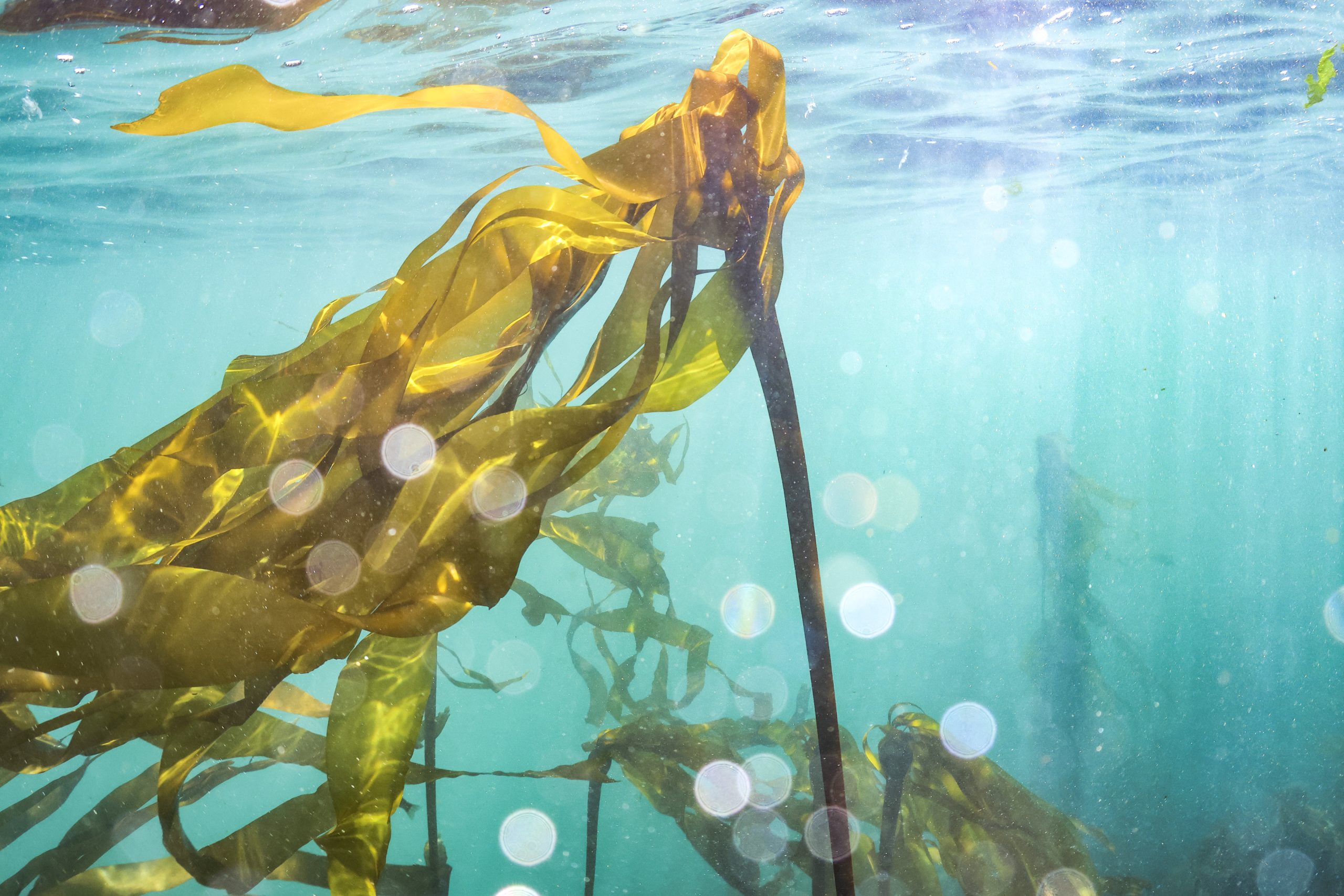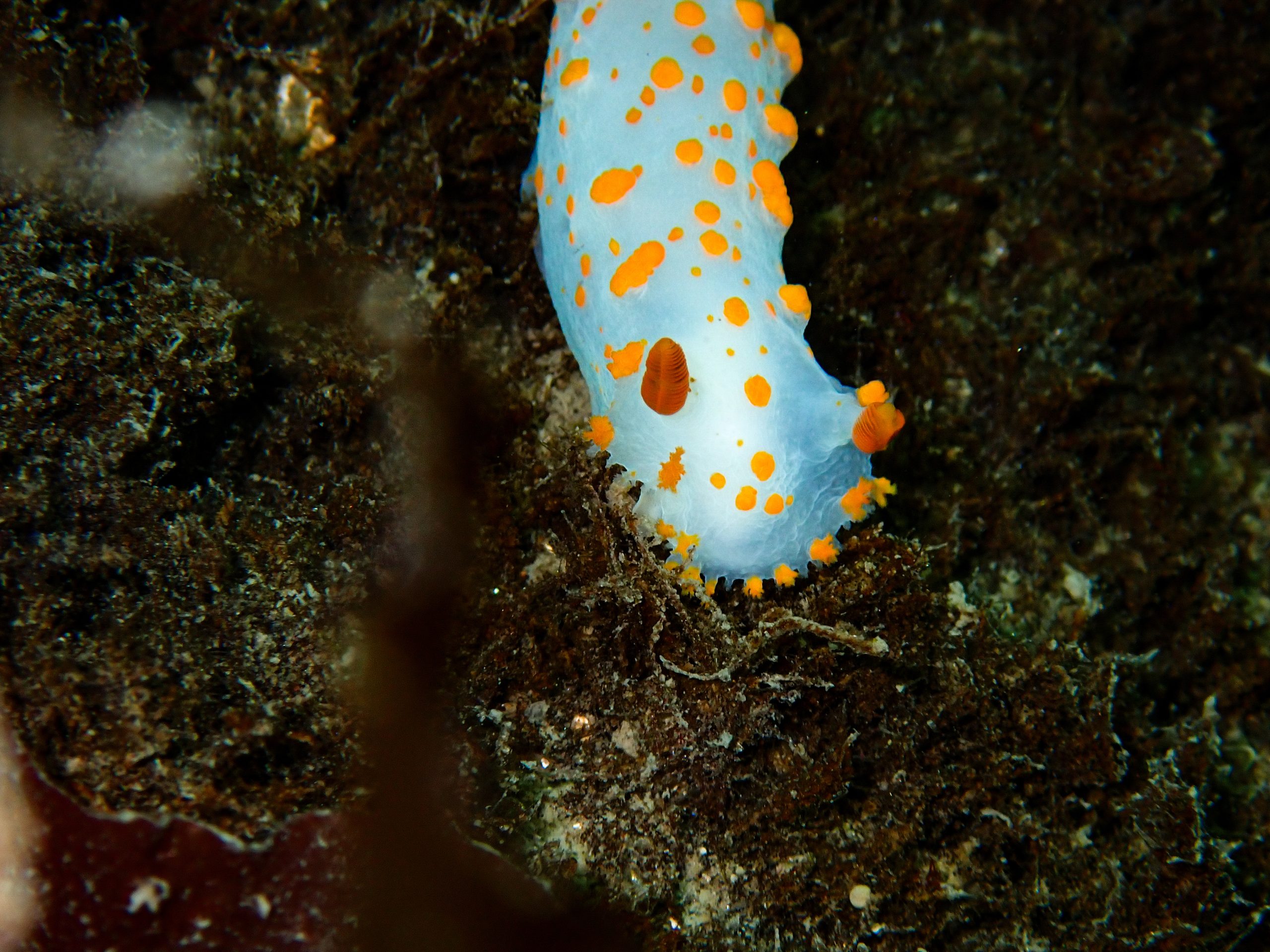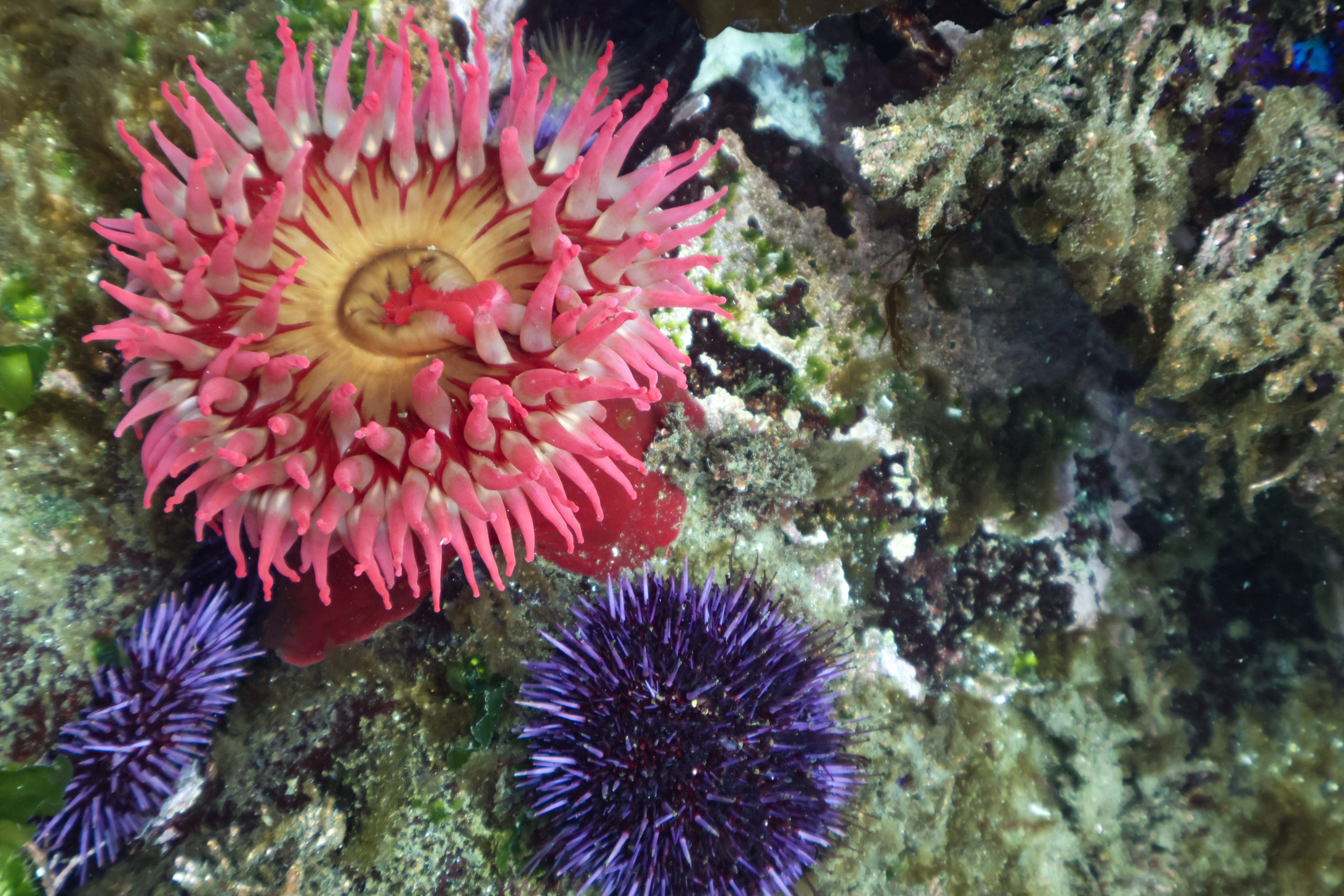The low-cost sport is a colourful adventure and lesson in conservation –– and it’s on the rise.

Photo by EcoAngle Photography
Giddy tourists, energetic children, and chatty locals gather along the Ogden Point Breakwater. I wish I could whisper to each and every one of them, “Hey, you. Yes, you! A whole universe of aquatic life exists just beneath your feet!”
An avid lifelong ocean lover myself, I was drawn by a desire to see what, if anything, existed in the waters where I live. I discovered this universe for the first time a year ago when I donned a wetsuit, mask, and snorkel, and entered the realm of the Salish Sea. I discovered an ecosystem rich with diverse life and colour.
According to Kendra Nelson, Outreach Coordinator at SeaChange Marine Conservation Society, over 3 400 unique species can be found in the Salish Sea. Nelson explains that this is partially because the Salish Sea is rich in biodiversity due to offshore waters that flow in through the Strait of Juan de Fuca and combine with waters from the Fraser River, Nisqually River, and other important watersheds, mixing ocean currents and land-derived nutrients. These nutrients act as a catalyst for all kinds of diverse marine life from tiny brightly-coloured sea slugs to large pods of orcas.
During my first snorkelling experience, I had the chance to witness this diversity firsthand. I found a plethora of underwater delights, including sea stars, lingcod, sea urchins, and colourful anemones. I was easily sold on the experience, and when I returned a few weeks later, eye to eye with a giant pacific octopus, I was hooked.
Many people on Vancouver Island are discovering the transformative experience of engaging with the ocean and its creatures firsthand. Snorkelling has risen in popularity on Vancouver Island over the past few years with snorkelling groups, clubs, chat boards, and retreats cropping up at an increasing rate.
One reason for this is the affordability of snorkelling. While activities such as scuba diving can provide similar benefits, snorkelling does so at a much lower cost. Scuba certifications and gear can require upwards of a thousand dollars, while snorkelling equipment can be obtained for the cost of a wetsuit and mask, or rented for a fraction of the cost, making it a more affordable means of interacting with life under the sea.
This increase in popularity may be partially attributed to the University of Victoria’s own Dr. Sara Ellison, a professor of physics and astronomy, whose snorkelling guide has provided many Vancouver Islanders with the tools they need to start snorkelling.

Photo by EcoAngle Photography

Photo by EcoAngle Photography
Ellison began snorkelling in the waters off of Vancouver Island during the COVID-19 pandemic when several of her upcoming international snorkelling trips were cancelled.
After several years of snorkelling regularly, Ellison’s manual, Snorkelling Adventures Around Vancouver Island and the Gulf Islands: The Ultimate Guide was published. The book outlines the most interesting, accessible, and safe areas to snorkel for many new snorkelers, myself included.
Ellison says that, to her, snorkelling feels akin to an “underwater treasure hunt.” She believes snorkelling is rising in popularity because for Vancouver Islanders, surrounded by water daily, the ocean is “deeply connected with [their] everyday well-being,” and now with additional literature and online resources in place more folks are opting to explore.
Avid snorkeler and UVic student, Clara Hudacin, echoes Ellison’s sentiment that snorkelling is a grounding experience. Hudacin states that “It’s hard to think about real life when your head is underwater freezing.” Snorkelling has also shaped Hudacin’s world outside of the water too. She says that it has encouraged her to take marine biology courses, and “become more interested in local conservation.”
Nelson attests that activities such as snorkelling can indeed have a profound impact on one’s commitment to ocean conservation.
“Connecting to nature with your own eyes and experiences is so unique and powerful,” Nelson says. And, when done in a responsible manner, it is a great tool for ocean conservation.
So what advice do you need to get started snorkelling around Vancouver Island? First, look but don’t touch! As Nelson advises, “Even small creatures can be stressed by our presence, so we need to be very mindful.” Additionally, if you see anything that shouldn’t be in the ocean, such as trash, take it with you when you leave.
Second, do your research. Tides, wind, and water temperature can all be dangerous in the waters off of Vancouver Island. Make sure you know how to read conditions and have proper equipment. Always snorkel with a buddy.
Finally, if in doubt, don’t go out! While snorkelling is an incredible experience with many benefits, if you have any concerns about the conditions, your gear or your degree of preparation, it is always best to come back another day!






